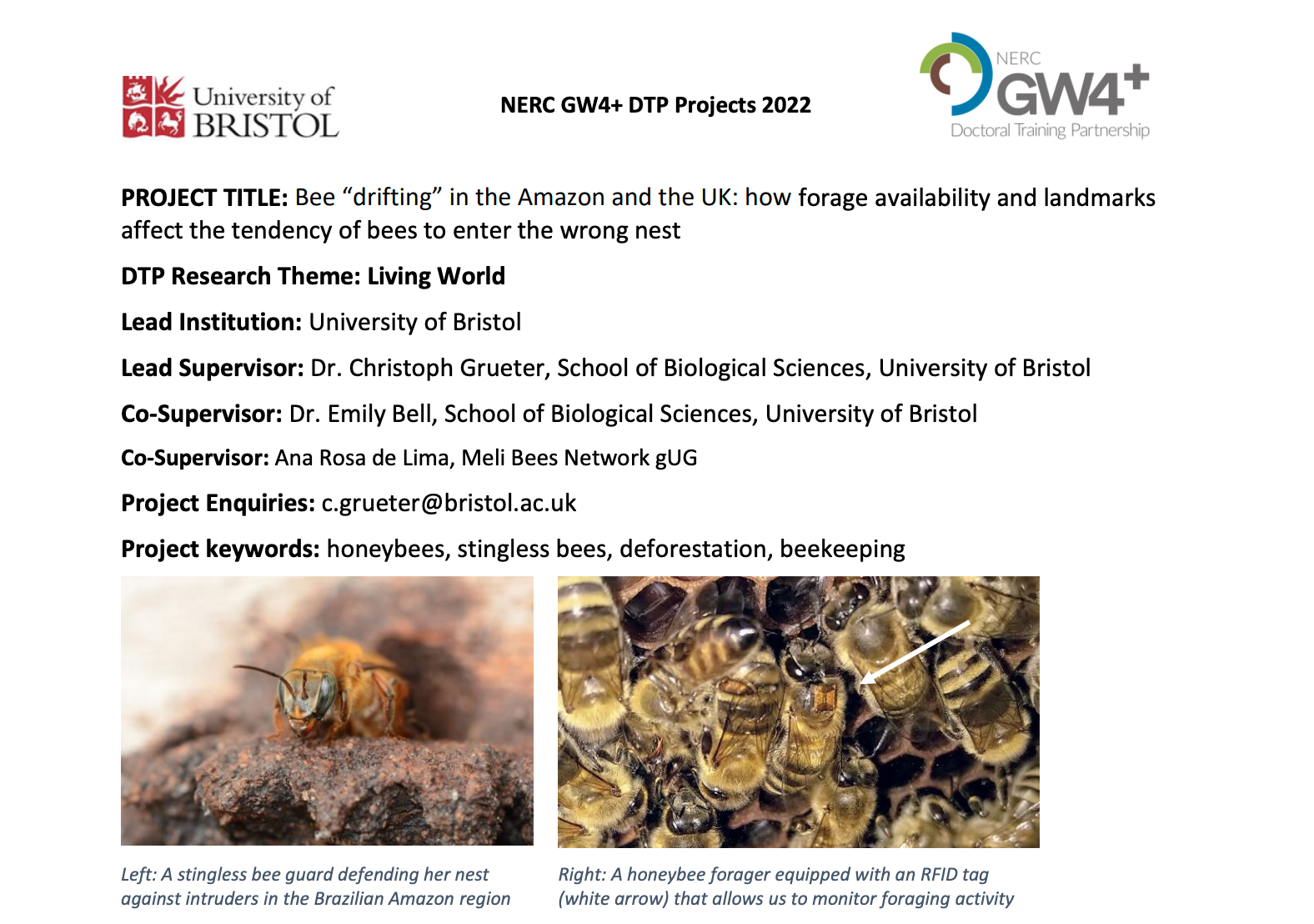Have you ever wanted to study the behaviour of stingless bees in the Amazon Region while also working with traditional communities? Now you have an unique chance to do so!
Author: Kyra Hertel
Bees are most essential for ecosystems and communities around the globe. However, their survival is threatened in many ways. Habitat loss, malnutrition, diseases and the increased use of pesticides lead to the weakening of those fascinating animals. One consequence can be the so called “drifting”: If bees do not find enough food they tend to enter the wrong nest. This happens specifically often in apiaries in highly disturbed environments. Those bees can spread diseases quicker and the productivity of the hives decreases. Let’s find out together which conditions increase “drifting” and how to prevent it to keep our bees healthy and safe! And with them the environment and their communities.
“Bees are most essential for ecosystems and communities around the globe.”
What is the PhD about?
The research project named “Bee ‘drifting’ in the Amazon and the UK: how forage availability and landmarks affect the tendency of bees to enter the wrong nest” is supervised by the University of Bristol and works closely with Meli Bees Network as a partner in the Amazon Region. With field and laboratory work in the UK and the Brazilian Amazon you will get to know both, the honeybees (Apis mellifera) in the UK and stingless bees (Meliponini). Therefore, you will work together with traditional communities in the Brazilian Maranhão state that have been heavily affected by deforestation. Also, you will take a close look on the honeybee hives inhabiting different landscapes in the South West of England.
“Habitat loss, malnutrition, diseases and the increased use of pesticides lead to the weakening of those fascinating animals.”
What will you do?
The research combines a variety of methods like DNA metabarcoding to assess pollen quantity or Radio-frequency identification (RFID) for tracking of bees and behavioral observations.
Like that you will find out what bees eat in modified and natural environments and how the availability of diverse food sources affects drifting behavior. Also, you will contribute to understand if guard bees who protect the entrance of the hives and artificial landmarks in apiaries can reduce drifting behavior. With your results you can help to find out what the bees’ most important food source is and help to improve the health and productivity of these important pollinators.
What do you learn during the Phd?
You are motivated, dedicated and like to work in a team? With the University of Bristol and Meli Bees you can deepen your knowledge in behavior, ecology and entomology. And even more: It’s all about bees! You always wanted to learn more about their natural history and how to study them with molecular method and bioinformatic tools? Well, what are you waiting for? Let’s get started!
Link for more information:
https://www.nercgw4plus.ac.uk/projects-2022-23/bee-drifting-in-the-amazon-and-the-uk-how-forage-availability-and-landmarks-affect-the-tendency-of-bees-to-enter-the-wrong-nest
Information about elegibitly and requirements:
https://www.nercgw4plus.ac.uk/apply
Link to apply:
http://www.bristol.ac.uk/study/postgraduate/2022/doctoral/phd-great-western-four-dtp/

